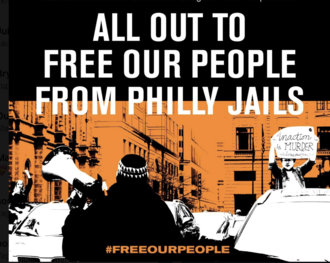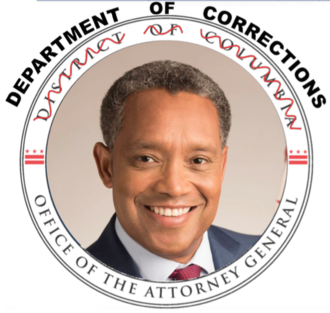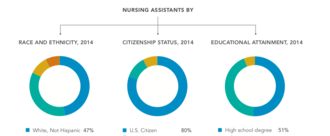- Featured
- Afropunk Army
- Community Control
- Confederate Symbols
- Cop Watch
- Corporate Accountability
- Criminal Justice Policy
- Drop/Bring Charges
- Economic Justice
- Education
- Employment Discrimination
- End The War on Black People
- Environmental Justice
- For-Profit Colleges/Universities
- Gulf Coast
- Housing Rights
- Immigration
- Invest-Divest
- Media Accountability
- Music Industry
- No Guns in Schools
- Open Internet
- Police Accountability
- Political Power
- Pop Culture
- Private Prisons
- Reparations
- Reproductive Justice
- Right Wing Racism
- School-to-Prison Pipeline
- Sports
- Voting Rights
- Wrongful Imprisonment
- More
-
Approve S.O.S. Stimulus Grants for Micro BusinessesOur tax dollars should be used to support churches, local restaurants, bodegas, barbershops, hair salons, dine-in restaurants, retail stores, Uber Drivers, and independent contractors who struggle....not "small businesses" that are publicly traded and have access to investors and big bank loans. This bill is for the business that watched as Shake Shack received millions, and felt defeated. Seventy-five percent (75%) of the Saving Our Streets (S.O.S.) Act would be used to provide grants worth up to $250,000 dollars to historically under-represented who are socially and economically left out - businesses owned by people of color, the formerly incarcerated, low-income, women. These are the business owners that banks denied, the business owners who can't call up the Senior Vice President of a major financial institution and ask for a "favor." Additionally, tiny businesses that have fewer than 10 employees (less than 20 employees if you're in an underserved community) AND have less $1 million in business revenue. This is NOT for publicly traded companies or hedge funds. They got access to their share. The SOS bill was set up for businesses that cannot compete with Ruth Chris, Potbelly, the Lakers - who benefited from programs like the Payment Protection Program. When you sign this petition, you are fighting for the self-employed, the Uber Drive, the FIverr contractor, the hair salon, the barber shop, the soul food spot....you are fighting for the side hustler who has to fight with their employer just to get fair pay. You are fighting for the businesses who fight to SERVE YOU every day. Press: "Sen. Kamala Harris and Rep. Ayanna Pressley have a $125 billion plan to help the smallest businesses" https://www.vox.com/2020/5/6/21249161/kamala-harris-ayanna-pressley-small-businesses-plan Kezia M. Williams CEO, The Black upStart www.instagram.com/theblackupstart www.theblackupstart.com Partners Supporing the S.O.S. Act NAACP National Urban League Black Economic Forum Main Street Alliance883 of 1,000 SignaturesCreated by Kezia Williams
-
Demand Governor Kemp extend the shelter in place order in Georgia!There are currently 25,939 active cases of Covid-19 in Georgia. Lifting the shelter in place will only contribute to the spread of Covid-19. We need Georgia to remain closed until medical research and scientific models show that it is safe to reopen. My mother Joeann Snead could have been your mother, daughter, aunt, or friend. Help to flatten the curve by demanding Governor Kemp to extend the shelter in place order.783 of 800 SignaturesCreated by Catolyn Merriweather

-
We Demand Racial Data and Equity in Testing during COVID-19In Chicago, Black people make up 70% of the people who have died due to coronavirus despite making up 32% of the population. In Michigan, Black people make up 14% of the population, but represent 40% of all COVID-19 deaths in the state, most of which are in the Detroit metro area. And in New York city, Black people are dying at twice the rate of the total population. These numbers are devastating but not surprising. From disparities in testing and treatment to the realities of implicit bias and an unequal healthcare system, we know that our people are carrying a disproportionate share of the burden of this public health emergency. But without access to nationwide data, we simply cannot measure its impact on the most marginalized members of our communities. In the past few weeks, every one of us knows someone whose family, friends or loved ones has been affected by this crisis. We need a comprehensive picture of what is happening if we are going to be able to come up with solutions to protect ourselves and each other. That’s why we are asking you to join us in calling on the federal government to collect nationwide demographic COVID-related data that will help us ensure greater equity in testing and treatment. As leaders committed to intersectional racial justice, Native Son, the Human Rights Campaign and The Body specifically call for the following: --Consistent and readily accessible publication of anonymized COVID-related racial and demographic data including testing rates, test results, hospitalizations, treatment, and mortality in compliance with existing healthcare privacy laws. --Development of a comprehensive, standardized data collection and publication protocol across all actors in the virus response including local and state public health departments and private companies providing testing and laboratory services. --Required comprehensive data collection and reporting for all healthcare system recipients of federal COVID relief funding across an expanded set of demographics including race, ethnicity, sexual orientation, gender identity and expression, socioeconomic status, and engagement with the criminal legal system among others. --Strong collaboration between the federal government and private testing and laboratory companies to ensure the collection and reporting of comprehensive demographic data in compliance with existing healthcare privacy laws. Although President Trump and other White House officials have recently acknowledged the racial disparity in COVID-19 deaths, the Centers for Disease Control has failed to provide complete nationwide racial demographic data on the impact of COVID-19. The limited data on race and ethnicity provided by state and local governments is inconsistent and not readily accessible. And there is currently no federal mechanism mandating data collection on other highly marginalized identities, including sexual orientation and gender identity. This means the recorded numbers of COVID-19 cases and deaths in our communities are being vastly underreported. And that means that we are not receiving the relief, testing, and treatment we need. Public health experts agree that the failure to establish a robust testing protocol during the initial phase of our national response put all Americans at greater risk than necessary of exposure to the virus and severely limited our ability to contain the spread. In Puerto Rico, the reported testing rate is a mere 15 tests per day for every 100,000 people. Now, as the disease caused by the virus claims thousands of lives each day, the compounding effects of structural racism on disease prognosis is starting to come into sharper focus. Until we are given access to data that shows the full impact of this crisis on our communities, we will not be able to coordinate resources to the places and people that need them most. Join us in demanding that the federal government collect nationwide, demographic COVID-19 related data today.2,072 of 3,000 SignaturesCreated by National Black Food Justice Alliance
-
Tell Governor Brian Kemp to implement a rent freeze and moratorium on all evictions in Georgia!Coronavirus (COVID-19) is now officially classified as a pandemic and the National Institute of Allergy & Infectious Diseases Director has stated, “it’s going to get worse''. Across media outlets, the prevailing safety precautions include “wash your hands" and “stay home”. However, residents in this state are not guaranteed to have access to these basic necessities. Water shut-offs, evictions and homelessness significantly worsen the threat posed by COVID-19. If more residents are evicted during this period, COVID-19 could start to spread more rapidly among those who become homeless. We cannot afford to have more emergencies on top of the current emergency. We urge Governor Brian Kemp to be an example for the nation while he stands with his constituents and implement a rent freeze and moratorium on all evictions in the state of Georgia.647 of 800 SignaturesCreated by Sandy G Johnson
-
Demand that Cook County State's Attorney Kim Foxx Decarcerate to Respond to COVID-19As of April 14, 2020, more than 300 people incarcerated in CCJ have tested positive for COVID-19 and 3 people have lost their lives. The rate of infection has climbed as high as 62 out of every 1,000 people incarcerated in the jail, and there are no doubt many more people who have COVID-19 but who have not been tested. Cook County Jail has been identified by the New York Times as the “top hot spot” in the nation’s pandemic. People incarcerated in jail are one of the populations most vulnerable to coronavirus and COVID-19, and their protection warrants special emergency action. Jails and prisons are known to quickly spread contagious diseases. Incarcerated people have an inherently limited ability to fight the spread of infectious disease since they are confined in close quarters and unable to avoid contact with people who may have been exposed. Cook County Jail is a death trap, and leaving people incarcerated there during this pandemic will result in the needless illness, suffering, and deaths of people in the jail’s custody, staff working inside the jail, and others in the community as our shared health care system becomes overwhelmed. As a candidate who campaigned on a progressive platform, it is State’s Attorney Kimberly Foxx’s responsibility to take bold action now. If State’s Attorney Foxx continues the present course, more people will inevitably and unnecessarily lose their lives.2,730 of 3,000 SignaturesCreated by Matthew McLoughlin

-
Decarcerate Prince George’s County Jail NOW!Prince George’s County jail is a hotbed of human rights abuses in the midst of the coronavirus crisis. Credible reports from whistleblowers inside of the Prince George’s County jail detail how correctional officers and jail officials have ignored early cases of COVID-19 contributing to community spread, penalized those who were infected, failed to provide adequate medical care, and resorted to illegally detaining people who have been bonded out but are exhibiting symptoms consistent with COVID-19. When not ignored entirely, symptomatic detainees are given nothing but Tylenol and sent back and forth between their housing units and the medical unit, exposing numerous others along their route. In certain housing units, detainees are punished or threatened with punishment by trying to use their clothing and linens to fashion personal protective equipment they are otherwise denied. For those who do test positive for Coronavirus, they are locked in an isolation cell where blood, feces, and mucus covers the walls. In the isolation cell, they are denied basic hygiene supplies, such as toothbrushes and toothpaste, for days. They are not allowed to shower for at least two weeks. During that time, they are forced to wear the same clothing for days, sometimes even a week or more, and often the same clothing in which they sweated through their fevers. They are denied access to telephones and any ability to communicate with the outside world. Even within the medical unit, any medical conditions that can’t be addressed through routine medication are ignored. They are trapped in cages, treated like animals, rather than the human beings they are. COVID-19 cases in New York, Chicago, and Washington, DC show that jails become ground-zero for pandemics because they are ill-equipped to allow social distancing, provide PPE, and provide adequate sterilization. The best way to contain the virus is to release as many people as possible from detention, limit the number of arrests in order to stem the flow of people in and out the jails and provide critical medical care for those who remain incarcerated during the pandemic.1,846 of 2,000 SignaturesCreated by Qiana Johnson, Life After Release

-
California's COVID-19 Budget Must Support Decarceration!As the COVID-19 pandemic spreads across California, people caged inside prisons and jails remain at the mercy of our elected officials. Last week, the California Senate formed the Budget Subcommittee on COVID-19 to address the budget needs of this crisis and will be holding their first hearing this Thursday April 16th at 2pm. The budget that California creates over the next few weeks will determine who lives and who dies. In Los Angeles alone there have been 11 confirmed cases of COVID-19 among the jail population, 33 cases among staff, and one custody staff on life support. With over 700 prisoners quarantined in Los Angeles and many remaining to be tested, incarcerated people and their families fear that there are many more cases yet to be reported. Los Angeles, along with many counties across the state, are taking steps to reduce the jail population in order to slow down the continued spread of the virus. The jail population in LA is at the lowest levels since 1990 - dropping from over 17,000 prisoners to 12,800, largely due to the continued advocacy of groups like JusticeLA. Now is the time for the State to do its part and help fund jail and prison decarceration efforts by providing funds for: -- emergency housing for houseless people, -- transitional housing for people being released from jails and prisons, -- permanent housing for houseless people and people being released from jails and prisons, -- community-based treatment for people with mental health, behavioral health and biomedical needs transitioning out of incarceration, -- pretrial and post release services, -- post-conviction review and resentencing, -- alternatives to incarceration to support the release of additional people from jails and prisons, and -- free phone calls for families reaching their loved ones behind bars.1,031 of 2,000 SignaturesCreated by Dignity and Power Now
-
Health Not Handcuffs: Stop Unnecessary Arrests in New OrleansAs New Orleans becomes the new epicenter of the COVID-19 virus, our first priority must be to protect community members inside and outside of the jail and public servants from contracting the virus. In jails and prisons, social distancing and quarantine is impossible, and healthcare is insufficient at best. An outbreak of COVID-19 in our jails and prisons would mean certain death for many of our community members inside, for jail staff, and for healthcare workers in our carceral system. As of April 21, 56 people in the Orleans Parish jail have tested positive for COVID-19, while 47 Sheriff's Office employees and 11 medical staffers have tested positive. As staff and community members filter in and out of the local jail, they come in contact with their families and neighbors--no matter how effectively we socially distance ourselves from one another. An outbreak in our jails endangers everyone in our community. Since this outbreak began, we have closely monitored which arrests have received bail hearings. So far, the data is clear: NOPD is still making custodial arrests for non-violent crimes. Between March 19 to April 17, 35% of people who were booked and required to receive a bail hearing were arrested for crimes that don’t pose a risk to the public. Regular updates are posted to Court Watch NOLA’s Twitter on Fridays at 5:30 PM CST. Minimizing the number of people introduced to the jail is crucial to slowing the spread of COVID-19 in our city, because every new person sent to the jail leads to an almost certain additional exposure to the virus that could have been avoided. Unnecessary arrests mean unnecessary deaths. Mayor LaToya Cantrell and NOPD Superintendent Shaun Ferguson have the power to reduce the risk of contagion by ordering an arrest protocol to stop locking New Orleanians up for low-level and non-violent offenses where there is no sign of clear and present danger of imminent physical harm. NOPD officers must utilize summonses in lieu of custodial arrests for nonviolent offenses. Sign our petition and demand Mayor Cantrell and Superintendent Ferguson change NOPD’s arrest protocol and stop locking New Orleanians up for non-violent, non-domestic, non-sex offenses. When you sign this petition, an email will be automatically sent to select New Orleans city officials. Thank you for continuing to fight for justice in the face of this global crisis.929 of 1,000 SignaturesCreated by Chloe Dewberry
-
Philly Courts and Mayor Kenney: Act Now to Mass Release People from Jail as Coronavirus SpreadsDozens of incarcerated people and prison workers are infected with coronavirus. Yet the Philadelphia courts are forcing the public defenders, private defense attorneys, and the district attorney to approve individual petitions to be seen by judges. That's meant that our jails have only decarcerated by 8-10%, while other cities have let more than half of their incarcerated population go.1,457 of 2,000 SignaturesCreated by The Media Mobilizing Project
-
COVID-19 is a death sentence for the people inside D.C. Jail & Halfway Houses #DecarcerateDC NOWFrom the moment the Mayor declared a public health emergency, defense lawyers have filed hundreds of motions in D.C. Superior Court demanding the release of their clients. Despite the flood of motions, D.C. Superior Court judges continue to operate as if business is usual. Rather than acknowledge the life or death circumstances at the D.C. Jail, judges are callously denying bond review motions and continuing to detain countless individuals. While the judges quickly shut down courtrooms to protect their own health and well-being, they have refused to show this same level of concern to the people whose lives hang in the balance inside of the D.C. Jail. With each ruling, the D.C. Superior Court judges are reinforcing a clear reality that Black and Brown people have long known: courthouses are a place where the lives of some are valued and the lives of others are not. But it is not only judges whose inaction risks the lives of everyone at the D.C. Jail. Attorney General Karl Racine has also made clear where he stands on the issue. Despite his self-serving, political rhetoric of being a “progressive” prosecutor, Racine’s actions show that he is nothing more than a politician who says one thing but does another. When the global health pandemic first started to impact the United States, Attorney General Racine authored an op-ed and signed onto a public letter creating the guise that he actually values the lives of incarcerated people. He wrote, “[Prosecutors] should use their discretionary authority to decrease the number of people in jails and prisons by immediately limiting the number of people prosecuted and unnecessarily detained pre-trial.” He urged all jails to “[p]rovide free soap and CDC-recommended hand sanitizer, increased medical care, comprehensive sanitation and cleaning of facilities and other safety measures.” He went on to say that jails should “[use] individual quarantines . . .rather than harmful practices like solitary confinement or generalized lock downs.” It is now clear that at the time he wrote these words, he never imagined he would one day be held accountable to ensure that these conditions were in place in his own backyard. On March 30, 2020, the Public Defender Service for the District of Columbia (PDS) and the American Civil Liberties Union for the District of Columbia (ACLU) filed a federal class-action lawsuit against the Department of Corrections. As evidenced by declarations attached to the complaint, the men and women at the D.C. Jail are being held captive in conditions that amount to torture. Despite the spread of this highly contagious and deadly virus, the DOC is not providing proper medical care and ignoring the desperate cries for help from the sick. The DOC has locked everyone in their cells, often with two people in the same cell, for 23 ½ hours a day. As if this was not horrific enough, the DOC has refused to provide hand sanitizer, basic cleaning products, or even adequate amounts of soap, so people can try their best to protect themselves from a virus that may kill them. Conditions in the jail are so brutal that the union representing the correctional officers who work there are supporting the ACLU’s lawsuit against their own employer, the DOC. According to the union’s attorney, “The DOC management has created an unconscionable public health crisis, and almost certainly guaranteed and accelerated the rampant spread of COVID-19 within the DOC facilities and the communities in which the staff live.” The people trapped at the D.C. Jail are watching and waiting helplessly for the day when their own bodies are ravaged by its symptoms. As the Attorney General for the District of Columbia, Racine’s office represents the Department of Corrections in this suit. Right now, Racine has the opportunity to rise to the challenge and ensure that the DOC complies with his own public proclamations. Instead, Racine is exposing himself as an opportunistic and hypocritical politician. The cowardice of D.C. Superior Court judges and the hypocrisy of Attorney General Karl Racine are no longer just ugly character flaws, they are obstacles endangering the lives of everyone held at the D.C. Jail. We demand that the people of the D.C. Jail be freed. We will not forgive and history will not forget.15,325 of 20,000 SignaturesCreated by April Goggans, Black Lives Matter DC
-
ACT NOW! WE WANT DECARCERATION OF OUR MEN AND WOMEN IN PRISON DUE TO COVID-19State Vs Us Magazine PO Box 29291 Baltimore, MD 21213 Attention Governors, LT Governors, Wardens, and Assistant Wardens: As you are well aware this pandemic has impacted so many lives worldwide. It is very well understood that those individuals who are incarcerated are there as a result of some crime they have committed or maybe didn’t commit either way they’re human. As a result of this virus causing a detrimental global impact incarcerated individuals who can’t practice social distancing in their already controlled environment are most susceptible. COVID-19 has directly and indirectly impacted our community and that includes incarcerated individuals and juveniles. There is no reason to act like these men, women, and children aren’t human as animals are treated better. COVID-19 should not be a death sentence for those accused of a crime nor those found guilty of a crime. The Governor has a moral obligation to ensure the safety of all humans within their state - that includes those incarcerated. As people, as humans, as children, and as adults we all have broken a law, did something wrong and some of us have been able to never see handcuffs or even a prison cell. America has proved over and over how judgment on others continues to be a plague on our community. At some point, our human must kick in and we must ask ourselves when will we act accordingly and think of others at doing right by them. Whether we are in the same tax bracket or not WE are a community. Our children are being taken from the comfort of their homes due to poverty in the middle of a pandemic. How fair is that? Children are being trafficked through the system and parents are hysterical. We ask you what if this were your child, place yourself in their shoes. The relationship between Slavery and families being separated by systems is no accident. Treating animals in the zoo better than families of color is disgusting - color does not remove our humanity - How will you sleep at night when this pandemic is over and nearly every incarcerated person is deceased - Knowing you had the power to change their outcomes and give them a chance to live. This letter serves as an effort to make our communities safer and save those lives who can’t save their own. Here is a list of demands for you to act on ASAP. This has to happen and has to happen now. History has proven that black America is 13% black and the prison population is 34% black. We are the most affected and this is your chance to correct an over 400 years long wrong. I challenge you to adhere to what is necessary and needed to not only improve families’ relationships but communities. *Better living conditions for our incarcerated individuals *Free phone calls and emails home to families *Return children who were separated from their family for reasons related to neglect *Children whose parents have been visiting with them and seeking their return *Children who the family court system has a goal of return to parent *Release all people in jail who are incarcerated on pre-trial and bondable offenses *Release all people who have a year or less *Release disable, sickly, and elderly individuals *Release non-violent offenses *Create emergency housing for returning citizens *We demand full compliance with all of the clauses of the eighth amendment cruel and unusual punishment clauses of the constitution. *We demand full compliance with the CARES ACT and immediate home confinement placement of those individuals who meet the requirements. With all love and prayer that you understand where I’m coming from as you will do the right thing. Tia Hamilton CEO, State Vs Us Magazine313 of 400 SignaturesCreated by Tia Hamilton
-
Seize the Masks-- Save Our Nurses & CNA's!Our frontline healthcare providers will within weeks be forced to choose between saving their own lives and doing their jobs, because of the government's failure to prepare for this pandemic by buying enough equipment--especially masks. The vast majority of these jobs are held by women, people of color, or recent immigrants. I know I am not the only mother who cannot sleep nights worrying about a loved one who is a health care worker. In my home city of new Haven, our first Covid-19 casualty was of course a Black man who worked at a health care facility serving the community. As a result of the bans on essential travel, I do not know when I will again see my own daughter, who is putting herself through nursing school while caring for patients in Boston. I pray she will not save others only to end up sick herself.189 of 200 SignaturesCreated by Jen Vickery




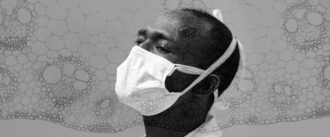
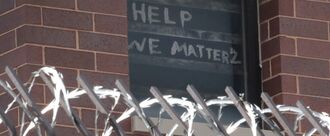
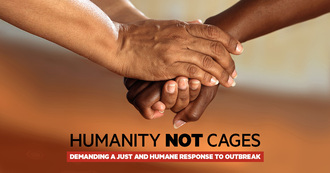
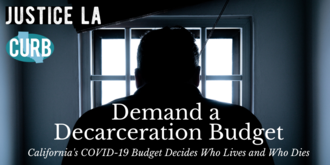
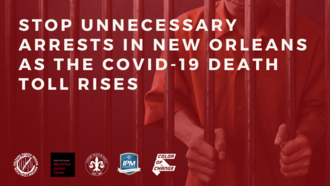.png)
